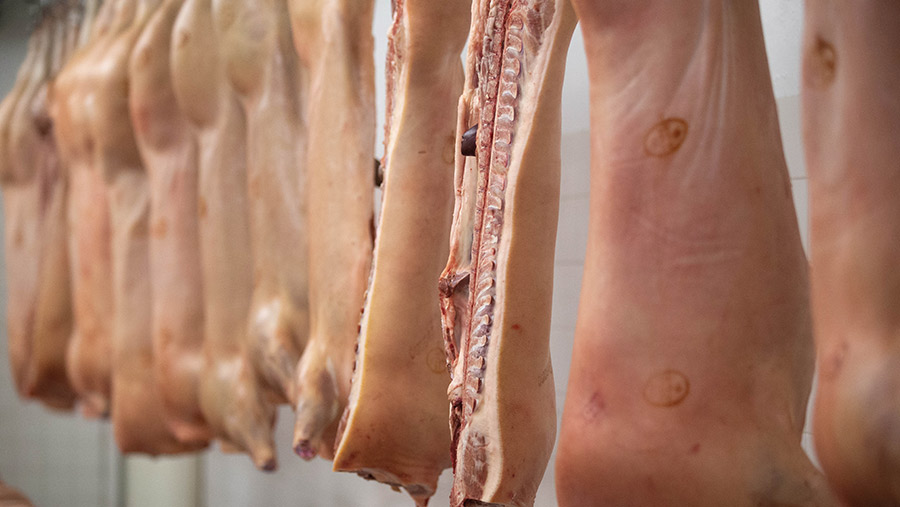Brexit rule change threatens British meat exports to EU
 © Tim Scrivener
© Tim Scrivener Post-Brexit rule changes on animal health checks could devastate the UK meat sector, farming and processing industry leaders have warned. From 13 December, Defra will impose rules requiring regular vet visits to farms to certify they are export compliant.
Meat industry bosses say that the extra red tape is not demanded by the EU, which simply requires a declaration by the farm that it meets animal health standards.
See also: Daera figures show NI dairy farms cutting emissions
The move could see British meat exports become non-compliant overnight, according to a coalition of 14 farm and meat sector bodies in a strongly worded letter sent to Defra.
One of the signatories, the British Meat Processors Association (BMPA), branded the rules as “yet another shot in the foot for the British economy”.
With 72% of meat exports going to the EU, the red tape would have big unintended consequences for farmers, processors and consumers alike, a BMPA spokesman warned.
“If Defra plough ahead with it, many farmers will be devastated and food prices will rise,” the BMPA spokesman said. “Meeting the requirements would take over a year to implement, but we have less than seven weeks to make the changes.”
The letter also highlights that the short timescale came amid a labour crisis which has hit the veterinary sector.
It stated: “Not only is this [legislation] not required by the EU, but given the current shortage of vets and the sheer number of farms that would need to be visited afresh, we estimate it would take many months to implement.”
The letter says the ruling, if applied, would leave UK meat exports non-compliant from thousands of farms that were not accredited with Red Tractor, Quality Meat Scotland or Farm Assured Welsh Livestock schemes.
Farms that are not assured would have to prove regular vet visits had taken place to obtain an export health certificate (EHC).
Ultimately, the self-imposed rules would add costs for farms, auction markets and meat processors, fuelling food price inflation, the letter says.
“The UK meat industry is now faced with an instant loss of a significant portion of its EU export market overnight for no other reason than Defra’s decision to add an extra layer of bureaucracy, but with no time to implement it,” it states.
NPA reaction
National Pig Association chief policy adviser Rebecca Veale said that, while most pork was from assured farms, the loss of veterinary time would have a knock-on effect on pig farms.
Responding to the letter, a Defra spokesman said: “We are aware of the concerns raised about the process of providing evidence of regular vet visits.
“We are engaging with businesses and the Royal College of Veterinary Surgeons to try and ease the burden on exporters in meeting the EU requirements.”
Letter signatories include:
- Association of Independent Meat Suppliers
- British Cattle Veterinary Association
- British Poultry Association
- British Pig Association
- British Meat Processing Association
- International Meat Trade Association
- Livestock Auctioneers’ Association
- NFU
- NFU Cymru
- NFU Scotland
- National Pig Association
- National Sheep Association
- Scottish Association of Meat Wholesalers
- Sheep Veterinary Society
The letter is available to read in full on the BMPA website.
